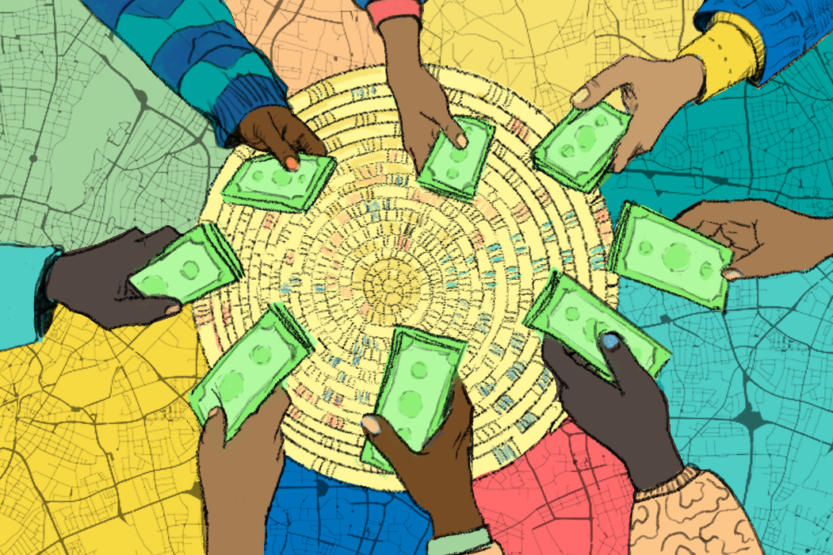If Coronavirus doesn’t kill my workers, then starvation will.”
These words, from a Bangladeshi factory owner, demonstrate the devastating impact of COVID-19 on the country’s garment workers. It is estimated over $3BN (US) worth of stock orders were cancelled by Western retailers as a result of COVID-19, meaning that manufacturers were left unable to pay their workers, leaving over 2.28 million people with a complete loss of livelihood in a country with a limited safety net.
It was this stark reality, combined with the fact that all the cancelled orders were likely to be sent to landfill, which inspired a group of people from shopping app Mallzee to create Lost Stock, a way of connecting the consumer directly to the manufacturer. With billions of pounds worth of stock orders being cancelled by retailers, leaving garment workers without pay and tonnes of clothes in landfill, Lost Stock founder and CEO Cally Russel thought: “why don’t we try and reinvent the supply chain?”
The concept is brilliantly simple. Customers fill out a questionnaire, detailing their size and style preferences and then are sent a box of assorted brand new clothes directly from the manufacturer that would have otherwise been wasted. More than 35% of that revenue then goes towards supporting a garment worker and their family for a week.
To ensure this latter part was organised as effectively as possible, Lost Stock researched into different potential partners in the areas worst affected by COVID-19’s implications on the garment industry. They then discovered the SAJIDA Foundation, who work in 26 different districts of Bangladesh, and worked with them to understand the nuances of their work and how they could collaborate to distribute aid to those most in need. The foundation has already aided over 50,000 households in response to COVID-19, distributed over 18,000 sets of PPE and installed 475 portable hand washing devices throughout the country. “Each Lost Stock box sold supports the continuation of this work, helping a family for an entire week”, explains Cally.
To date, over 100,00 boxes have been sold, meaning that more than 100,000 families have been helped in Bangladesh. Furthermore, each box also provides much needed revenue to the manufacturer after suffering such extreme order cancellations. Lost Stock also estimates that the initiative has already prevented at least 350,000 quality garments from going to landfill.
By working directly with Bangladeshi manufacturers, Lost Stock have been able to retain the excitement customers feel when receiving new clothes, while also appealing to their want to ‘make a difference’. Cally states that the latter is what really surprised him: “When we first began this journey, we were overwhelmed with customers’ generosity and desire to help. The impact of COVID-19 was felt around the world and I believe people genuinely were looking for ways to show their support to those most in need.” The organisation has engineered a win-win-win situation, consumers get clothes at a great price, workers are supported and products are prevented from potentially ending up in a landfill.
Cally hopes that the increased interest in sustainability goes beyond the ‘moment’ of COVID-19. “If nothing else, COVID-19 has made us all take stock and recognise that we don’t need much to live fairly happy and content lives when we have our health. The outdoors has also become a place to escape given the lockdown restrictions. With this in mind, I think consumers are looking at ways to be more mindful and make sustainable choices. It’s an exciting shift that could have measurable effects on our natural environment and change shopping habits.” Lost Stock has made moves to encourage the permanence of this change, nudging shoppers towards a more circular economy. This has been achieved by creating partnerships with organisations like the British Heart Foundation who are offering free postage for boxes and Nuw and Swopped, a ‘swap and lend platform’. They are also engaging up-cycling experts to create tutorials on the Lost Stock Instagram channel, teaching their audience to adapt old clothes, instead of sending them to waste. This same platform aims to humanise the garment industry with Cally adding that: “the response to ‘meeting’ and hearing their stories has been really well received by our audience.”
Whether this impact will be long-lasting is, of course, uncertain. However, initiatives like Lost Stock prove that solutions which positively affect everyone involved are out there. The emphasis however needs to be on initiatives challenging the structure of the garment industry instead of just greenwashing an existing corporation. As Cally states: “we keep asking brands to be better but why don’t we just build better brands? That’s what we’re now starting to work towards.”
Follow Inès Hachou on Instagram @ines_hachou













